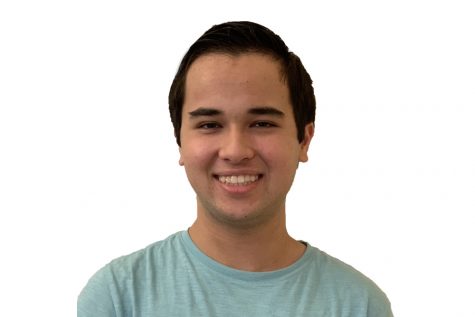
Twitter: @NoahBraunstein1
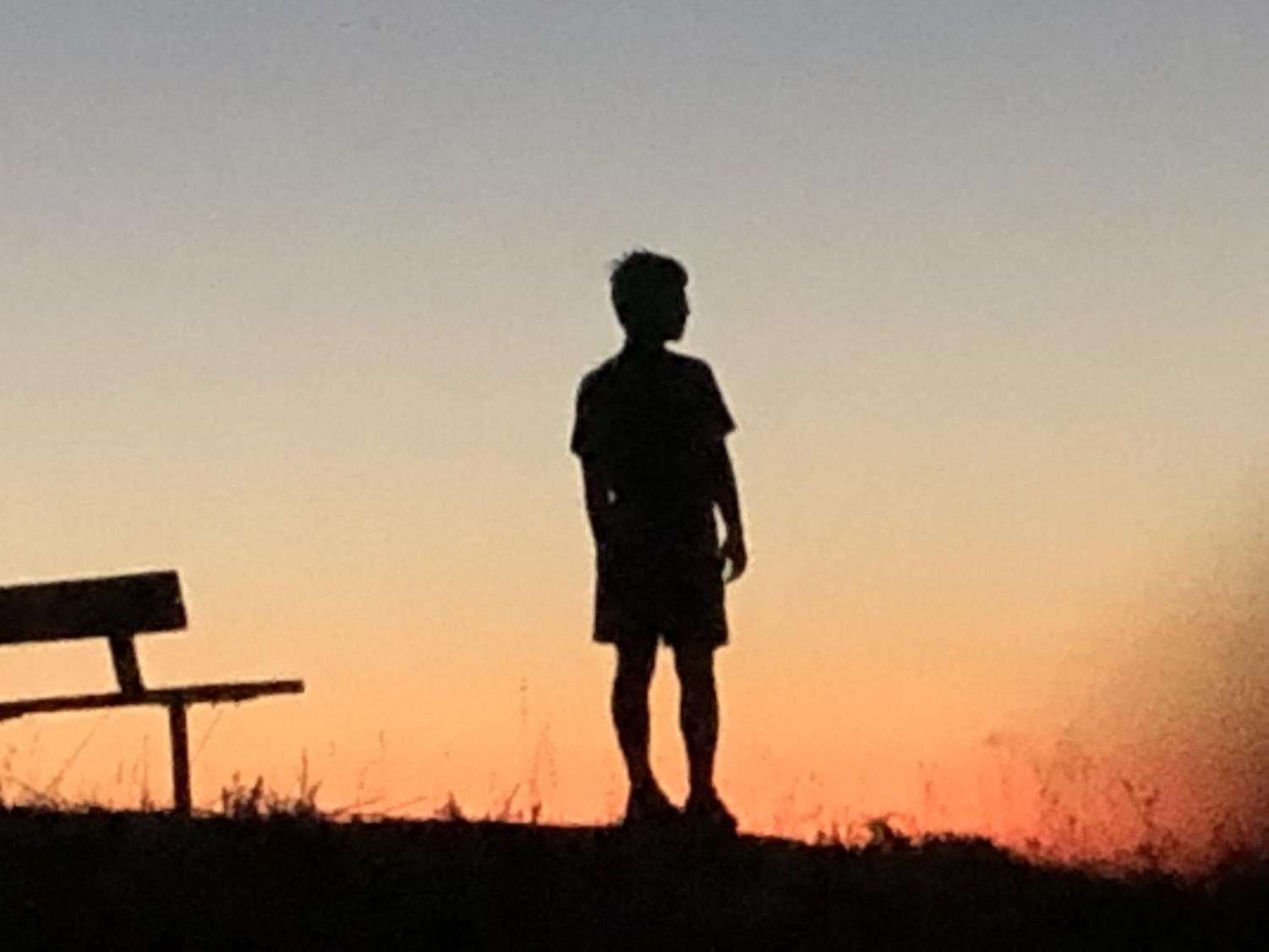

As high school seniors consider post-graduate options, more are turning towards less conventional paths, especially due to the uncertainties during the pandemic
February 28, 2021
In 2018, according to the National Center for Education Statistics, 44% of high school seniors enrolled in four-year institutions, and 26% immediately enrolled in two-year institutions.
The number of Carlmont students that follow a traditional path to a two or four-year school plan is even higher.
According to a recent independently conducted survey of 147 current Carlmont seniors, 83.7% plan to apply to a four-year college, and 44.2% are considering a two-year college as an option. In considering alternatives to college, 21.1% plan to travel, 31.3% plan to work, and only 17.7% plan to apply for an internship.
Students often find that families expect them to go straight from high school to college. Carlmont’s Mental Health Therapist Heather Lazzaretti corroborated that students experience a great deal of stress and anxiety about post-graduate plans.
“There is pressure for students to have some sort of plan after high school, whether it be to continue formal school or find employment. The message from parents is that it’s important to have, and be working toward, a specific direction,” Lazzaretti said.
Additionally, current Carlmont seniors indicated in the survey that more information is provided at school about college, than about alternative options.
All of these factors tend to keep seniors looking straight ahead of the routine pathway. Carlmont senior Nicole Doud is applying to four-year colleges on the traditional route, concerned about the uncertainty of alternative experiences.
“I have thought about other options other than directly going to college, but I have not actually considered going through with them. I am worried that with everything shutting down that my family will have to pay so much for me to just take classes at home, but I feel it is also risky for me to take a different route with a gap year or something instead,” Doud said.
Senior Tej Tummala is also applying to traditional schools, feeling pressure to get through potentially many years of higher education.
“I have not considered taking a gap year or doing some kind of work or travel experience. As a prospective pre-med student, I know that I have a long path of education ahead, and I prefer to get started on that journey as soon as possible,” Tummala said.
While statistics show that many students might never have looked beyond the traditional path, the COVID-19 pandemic has led many students to consider a “gap year,” or exploration beyond the norm.
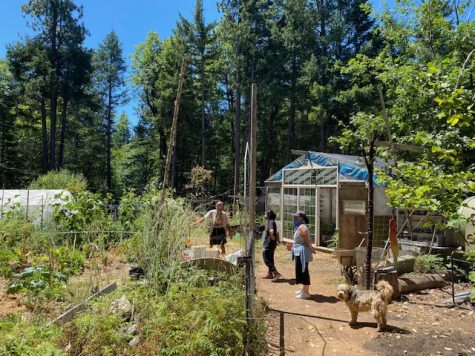
In the fall of 2018, life was good for then high school senior Samantha Wong. She had the complete “high school package”: full resume, outstanding grades, and completed college applications. By early 2019, in came college acceptances, including an offer to her ultimate college destination, Sarah Lawrence College, a liberal arts college in Yonkers, New York. Her academic journey followed a nicely laid path — high school studies, hard work, excellent testing scores, applications, and college. And by fall 2020? Wong indeed finds she has gained so much—life lessons, new philosophies, science knowledge, and new relationships.
But not from her dream college; it was all from a small farm out in Southern Oregon.
The COVID-19 pandemic has forced many recent graduates to step off the path they anticipated, causing them to re-examine traditional college choices or at least look for a temporary detour.
With many students finding online education inadequate, options such as working, internships, or taking time off provide some recent graduates with perspectives outside of the linear, “head down, go to college, and get a degree” approach. Although many were forced off their path by circumstances beyond their control, the insights they are gaining may be a reason for all young people to stop and examine what route they should take toward their future path.
In Wong’s case, she was proceeding towards a liberal art major when COVID-19 derailed those plans. Due to on-campus college closures, Wong left Sarah Lawrence for home, disappointed that her education and new social circle were taken away from her.
“I was working hard, and it was disappointing to see how quickly things can get taken away from you. I did my best with online school, but it was a struggle for me. The education I was promised was not going to be available for a long time. I was not willing to spend the money for that, and it cost my health with stress and anxiety… so I decided to call it quits,” Wong said.
This decision would prove to be transformative.
“The COVID pandemic was a transition to my looking for an internship,” Wong said.
Back at home, chance inspiration from watching a movie, “The Biggest Little Farm,” led Wong to discover a farm internship with Worldwide Opportunities on Organic Farms (WOOF).
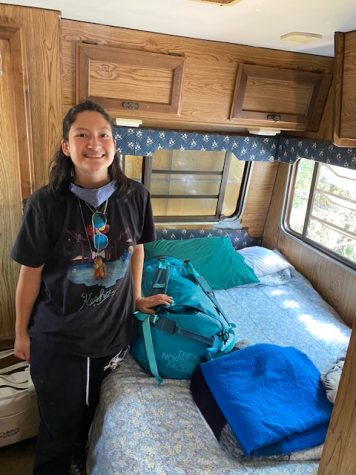
WOOF is an organization that aims to promote worldwide interest and knowledge in ecological farming practices, in part by linking organic farmers with students and interns. Within a week, she was placed at a local farm in Selma, Oregon. There she met Roan Wadsworth, a fellow WOOFer who works with Samantha at the same site.
From a liberal arts college in upstate New York to a small farm in southern Oregon’s rural woods, Wong has been experiencing life experiences vastly different from those at college in New York or during her childhood in urban San Francisco.
“Smelling the clean air, swimming in the creek, climbing in trees… I can’t remember the last time I did those things. Every day I am doing something new. One of the highlights of my experience here was building a “cobb shower”—a hard-drying mud construction. Getting my hands dirty and problem-solving how to grow and build what we need is priceless education that I wouldn’t have gotten in a classroom,” Wong said.
Wong realized that stepping outside of the structured environment of college, she learned much greater lessons about basic self-sufficiency, away from the comforts of the big cities.
“It’s incredibly empowering to understand how to take care of yourself and be self-sufficient and not be reliant on a certain structure. If grocery stores were to close—where do you get your food? Where do you take care of yourself when structures are more insecure than you think?” Wong said.
If it weren’t for the pandemic, Wong would likely have continued along the linear college path. More high school students traditionally plan for a two-year or four-year college than gap years or internships.
Despite the trend to head straight to college, the experiences of other recent graduates who found their plans changed by the pandemic have also found their knowledge broadened by their experiences.
Recent Carlmont graduate Sam Hosmer had a similar experience to Wong, though in a very different field. While at home for health reasons early last year, Hosmer found that he couldn’t return to his college campus due to the COVID-19 pandemic. With another displaced student, Michelle Kleytman, they began to help with local campaigns in San Mateo as a hobby. Eventually, they grew their hobby into a business, “Hosmer Kleytman Political Consulting.¨
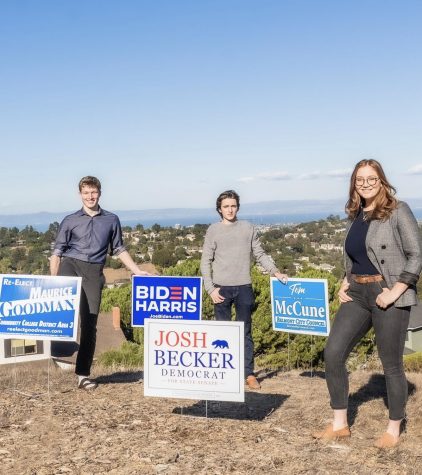
While running political campaigns around San Mateo County is vastly different from Wong’s internship in rural Oregon, Hosmer’s experience taking on a hands-on job outside of college also provided eye-opening lessons very different from those in classrooms. He and Kleytman took on paying clients, candidates who allowed them carte blanche to run all aspects of their campaign. While it was exciting, it was “shoe leather” hard-work that required a great deal of fast, learning-by-doing.
“This was baptism by fire! If we screwed up, it was consequential. Our work for our candidates required us to strategize and conduct day-to-day decision-making. I learned more than from any textbook about running a campaign,” said Hosmer.
However, as a bonus for their hard work, Hosmer gained great satisfaction from all of their candidates winning their races.
Is such experience the right thing to do? Hosmer echoed the same themes as Wong.
“Do what feels right. Don’t get too caught up in the weeds of questioning, ‘What if I slack off, and what if this isn’t the right thing…’ If you’re the kind of person who knows from experience that you can learn this way, college is the time to do this,” Hosmer said.
While some might assume that leaving college may give up the “college experience,” a job or internship doesn’t have to mean leaving behind the social aspect.
Ethan Knight and Avi Verma are two college students taking time off from Stanford University to take an internship at a large tech company headquartered near Palo Alto. With spring’s shift to distance learning, Knight didn’t feel online lectures provided the learning environment and quality of education for him.
“Online school took away many of the things we had come to enjoy about Stanford. We felt that many of the things we loved about campus life were lost in the transition online,” Knight said. The opportunity to take a year off to start working was a convenient option.
Knight’s Stanford roommate, Verma, concurred with feeling online learning was not right for him.
“I did spring online, but I found it hard to learn and felt I was slacking,” Verma said. He followed Knight in taking a year off from school to pursue an internship at the same tech company.
Knight, who now works as a computer vision engineer, and Verma, a full-stack intern whose job is streamlining processes for engineers, found a creative way to hang onto the social aspects they missed at school.
Although they have moved into Knight’s parents’ home, they turned the front room of the house into the dorm room they left behind, complete with a guitar, unmade bed, and takeout food boxes. By day, they gain hands-on work experience, while outside of work, they still hang out with friends who stayed in college. During a difficult time, they find they are as close as they can get considering the circumstances.
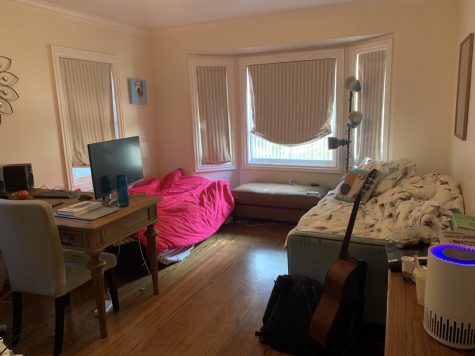
Nevertheless, while this experience has been positive for both, each cautioned that taking a break should be based on the individual. Knight provided some thoughts for anyone considering taking time off.
¨It’s important to think deeply before taking a gap year. College gives you a rigorous workload, a set schedule, and opportunities for meaningful friendships almost immediately. However, without that structure in place, there are many lessons that you’ll learn in an internship or pursuing your own venture that you can’t learn inside a lecture hall. It’s a high-risk decision, but it can be very rewarding,” Knight said.
Whether formally or planned on your own, the decision to take a gap year is a big one and should be considered carefully.
Students seek guidance from different sources. Professional college counselor Lessa Scherrer, with College Inside Track, does discuss the concept of “gap years” with her high school senior clients and how each student should evaluate their goals. She mentioned that the idea of a gap year tends to worry parents, who fear their child may not return to school. In contrast, gap years are more common in Europe, where the idea of taking a break between secondary school and “university” is much more the norm.
“We saw a spike in gap years when Malia Obama took one in May 2016 and made it much more normal to do so. But a few years later, we have lost that,” Scherrer said.
Scherrer does believe that students should consider a gap year, as she believes that there are many positives:
“It is a time to breathe, mature, and get things settled, with a higher likelihood to graduate in four years from their college of choice. I would encourage them to take a gap. I think it’s beneficial. Apply and get a deferral. Working, saving money, all of that is broadening for kids, especially the high academic achievers who haven’t managed to reach out fully and experience as much out of the textbook,” Scherrer said.
Scherrer mentioned two resources that can provide guidance for those seeking a gap year, American Gap Association, and Gap Year Association.
For Carlmont students looking for more advice, College and Career Center counselor Nina Rasor reminds students that there are resources that the center can offer. There are informational brochures in the College and Career Center in regards to gap years and military opportunities.
The military comes to campus and visits with students, and the Navy gives students the opportunity to meet and talk with them virtually. With internship opportunities, organizations/companies reach out to the College and Career Center to notify students about information and openings for each grade level. However, Rasor believes that counselors are the right people that students should reach out to for help in post-graduate planning.
While the future looks promising that there will someday be a vaccine for COVID-19 and the path will be clear for students to resume college on the linear path, the experiences of Wong, Hosmer, Knight, and Verma show that there can be a great deal to be learned outside of the traditional four-year college path.
